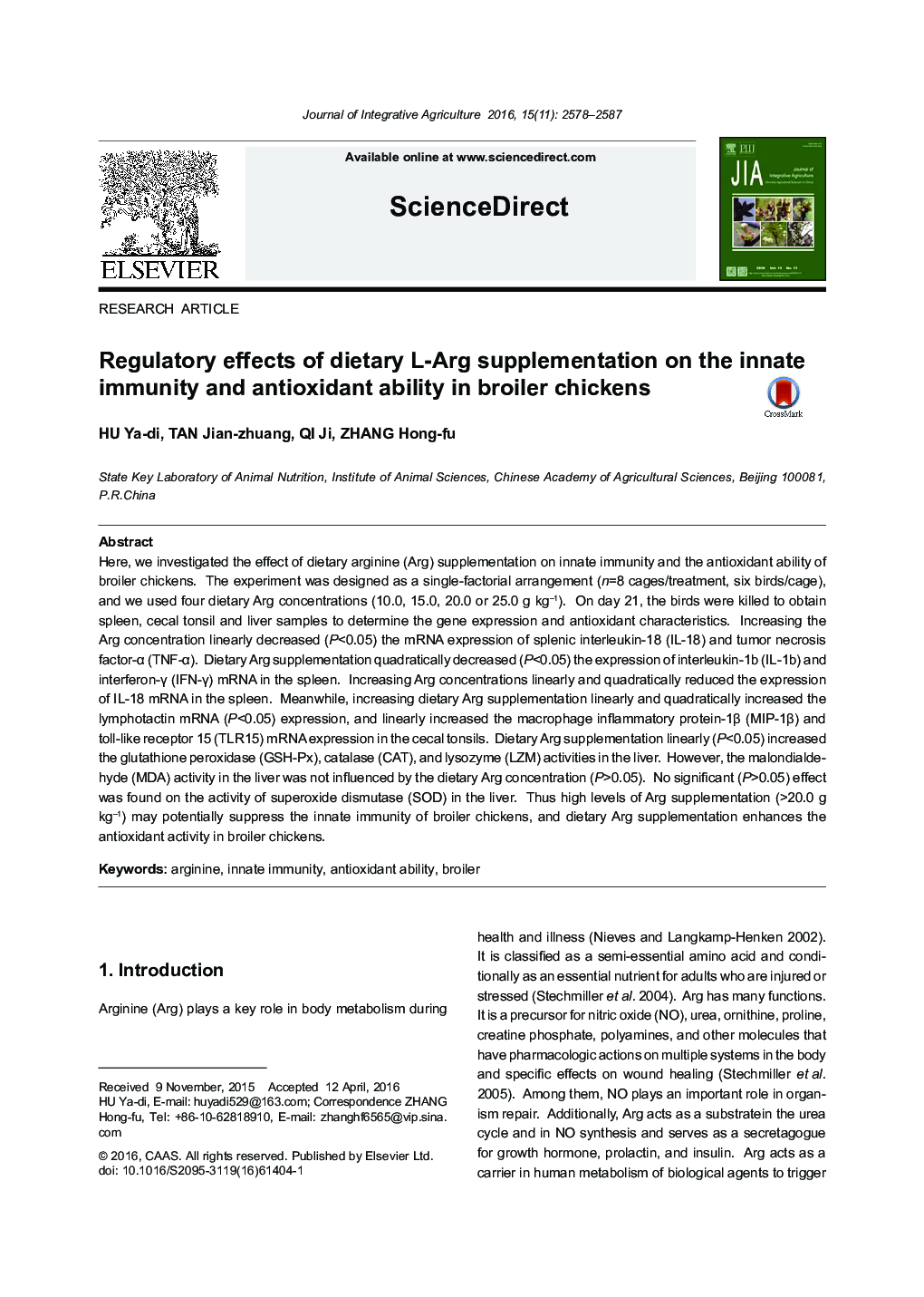| Article ID | Journal | Published Year | Pages | File Type |
|---|---|---|---|---|
| 8876217 | Journal of Integrative Agriculture | 2016 | 10 Pages |
Abstract
Here, we investigated the effect of dietary arginine (Arg) supplementation on innate immunity and the antioxidant ability of broiler chickens. The experiment was designed as a single-factorial arrangement (n=8 cages/treatment, six birds/cage), and we used four dietary Arg concentrations (10.0, 15.0, 20.0 or 25.0 g kgâ1). On day 21, the birds were killed to obtain spleen, cecal tonsil and liver samples to determine the gene expression and antioxidant characteristics. Increasing the Arg concentration linearly decreased (P<0.05) the mRNA expression of splenic interleukin-18 (IL-18) and tumor necrosis factor-α (TNF-α). Dietary Arg supplementation quadratically decreased (P<0.05) the expression of interleukin-1b (IL-1b) and interferon-γ (IFN-γ) mRNA in the spleen. Increasing Arg concentrations linearly and quadratically reduced the expression of IL-18 mRNA in the spleen. Meanwhile, increasing dietary Arg supplementation linearly and quadratically increased the lymphotactin mRNA (P<0.05) expression, and linearly increased the macrophage inflammatory protein-1β (MIP-1β) and toll-like receptor 15 (TLR15) mRNA expression in the cecal tonsils. Dietary Arg supplementation linearly (P<0.05) increased the glutathione peroxidase (GSH-Px), catalase (CAT), and lysozyme (LZM) activities in the liver. However, the malondialdehyde (MDA) activity in the liver was not influenced by the dietary Arg concentration (P>0.05). No significant (P>0.05) effect was found on the activity of superoxide dismutase (SOD) in the liver. Thus high levels of Arg supplementation (>20.0 g kgâ1) may potentially suppress the innate immunity of broiler chickens, and dietary Arg supplementation enhances the antioxidant activity in broiler chickens.
Related Topics
Life Sciences
Agricultural and Biological Sciences
Agricultural and Biological Sciences (General)
Authors
Ya-di HU, Jian-zhuang TAN, Ji QI, Hong-fu ZHANG,
